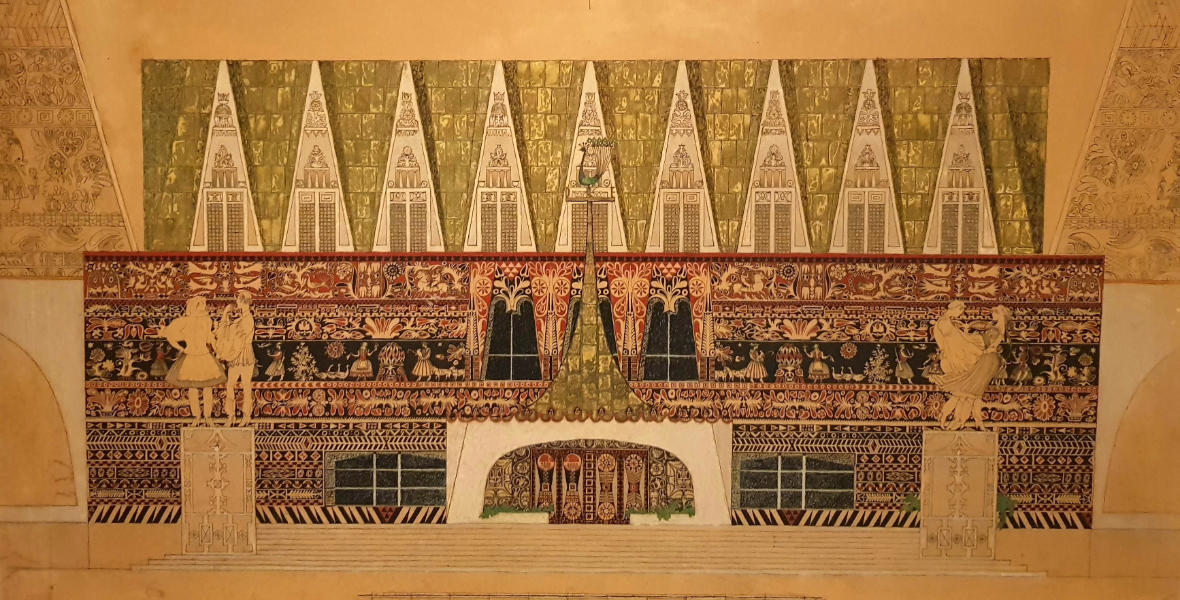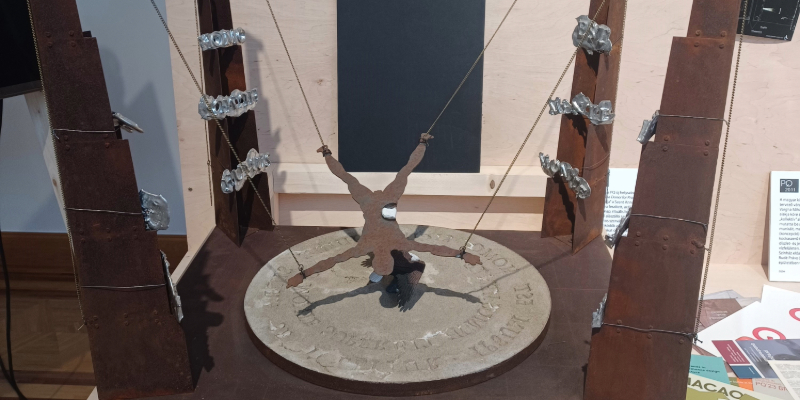On the occasion of Hungary's national celebration of 15th March commemorating the outbreak of the 1848-49 Revolution, Hungarian President János Áder conferred a Kossuth Award on Full Member of the Hungarian Academy of Arts, József Attila Award and Laurel Wreath Award winning poet, writer and literary translator, Dornesti (Romania) born Menyhért Tamás in acknowledgment of his prose works exhibiting Transylvanian traditions of folk poetry and the uniqueness of the Bukovina (Romania) based Székely dialect, as well as in acknowledgment of his authentic and sensitive portrayal of the heavy heritage of Hungary's 20th century history and his depiction of human tragedies in the modern age. Pesti Vigadó interviewed Menyhért Tamás about his personal involvement in the themes addressed in his works as well as about his origins and his literary instruments.
In what way are you personally involved in this heavy heritage and these tragedies?
I believe I few factual data will suffice to answer this question. I was born in 1940 in the village of Dornesti, which was originally founded out of sheer necessity to accommodate Székely fugitives. We should not forget that this necessity, which encapsulates the migration of the Székelys from Siculeni up until their settling in the Transdanubian region, inevitably impacted the life of this small community of Székelys. This journey was paved with numerous stations and all of them turned out to be the stations of suffering. We hardly left our hectic circumstances in Bukovina behind, when during our train journey we were told that the region around the Hungary-based town of Székesfehérvár was soon to provide us with some comfort and security or else we had nowhere to go. We were quite optimistic up until we reached Cluj (Romania), when impatience dictated by World War II had another plan for us: we were to head to Historical Hungary's Southern Territories. Even those who wildly cheered for us when we arrived failed to let us know that we had landed in the middle of an ethnic conflict... A tragedy I experienced as a child was to hear the firing of guns each night up until I was four and a half years old. Then we experienced another episode of fleeing: we had a war front ahead of us and another one also behind us; we had to keep hiding for two months until we finally found some shelter. We walked to the Western border... then back until we reached the Tolna and Baranya regions. We slept where we could... And we were not happy even in May 1945, when the War officially ended with Germany's surrender.
Are you still in contact with your homeland?
The Bukovina region still has an effect on me: I have retained the Bukovina dialect and its strong linguistic influence. It was 78 years ago that I left my homeland, but in mind I have been with it ever since. And I have also been spreading the wisdom I learnt there. I have never imagined that this long distance will make me a writer...
How did you become a poet? After taking the maturity exam in the secondary school, you first worked as an unskilled worker, then as a journalist. When your first volume of poetry entitled "Szövetségben a fákkal [In League with the Trees]" was published in 1974, you were already 34 years old. What made you write works addressing the history of your family and the Székelys of Bukovina?
At the beginning of 1979, I started working as a journalist covering cultural affairs for the Hungarian daily Népszava and later I worked as an editor for the Hungarian literary journal Szép Szó. This literary journal was more than just a workplace. As early as in the first year, my workplace grew to be an intellectual workshop; apart from opening up my eyes it also broadened my horizons. From one day to the other, I found myself working with the old generation of renowned literary figures and so I was in daily contact with Gyula Illyés, Endre Illés, Pál Szabó and others. Their liberating encouragement has been with me ever since. Just like it is the case with the guiding and caring encouragement I received from the following outstanding Hungarian literary figures: Sándor Weöres, Zoltán Jékely, Magda Szabó, László Dobos, Mihály Czine, László Rónay and András Sütő.
My active editorial work may have also played a part in the late publication of my own volume of poetry. Such a delay also delivers its fruit: it helps authors produce more works. This postponement also helped me find themes that could be written about and that could ignite my literary creativity. Concerning the birth of the ideas behind my literary works, let me mention my novel entitled Esőrácsok [A Bar of Rain] as an example. The plot takes place at the train station of Cosna, which is situated along the railway line connecting Bukovina and Transylvania. A man took pictures of the relocation of the Székelys in Cosna in the 1940s. The widow of that man showed me an immense number of photos: there were about 800 images in front of me on the dining table. The first thing I noticed was that it was raining on all the photos. On my way home I suddenly had an idea about the title of the novel I was to write: Esőrácsok [A Bar of Rain]. As if it was a film running in front of my eyes: I remembered the night in the barrack and the quick and nervous talk of the signalmen. Just like the monotonous patter of the rain: the novel is but one single lyrical sentence, recalling the hopeless and sleepless talk in the barracks...
In the morning the sky was clear again. The people waiting on the platform recalled the answer of our rural dean Antal Sebestyén to the question "Does our Rural Dean happen to know where we are heading?": "We are heading in one direction up until there is yet another decision by one of the Great Powers."




